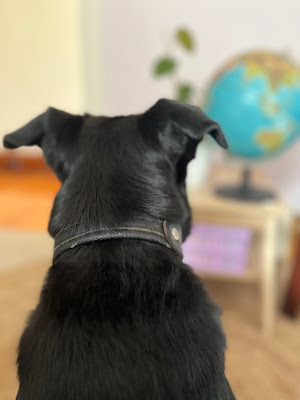Peer navigators bring lived experience into libraries
Passing a good amount of security to
enter the library, and walking up some stairs to the first floor, a few people
sit at computers or around at desks, chatting. There is a bright table by the
windows. It has been carefully set up - covid test kits, masks and boxes
of Narcan on display.
"It's all about the display," Donna Bruce comments as she does a little set design at the location. At the table next to her, two social workers wait and receive a steady stream of people.

"Have you been Narcan
trained?
"We'll do that before
you leave. Its real quick.
"I used it on someone
here recently. It took four cans and then I did mouth to mouth but he survived
and he came back the next week to thank me.
"But you have to be
really careful when you administer it. People don't know what is going on, they
might jump at you."
Donna’s association with the library started when she and other peers were approached by local councilman, Zeke Cohen to run a pilot peer recovery program at the library, a collaboration between the Council, the Enoch Pratt Public Library and a local peer advocacy, outreach and training group, the Maryland Peer Advisory Council (MPAC).
The need for a library program arose after a spate of overdoses and a number of patrons presenting at the library with needs relating to substance use, homelessness, mental health and domestic violence. Library management wanted to do something, not kick people out.
Looking out the library windows you get a long view across the street, including the drug store that was burned down in the riots, Donna points out the spot where her son died a year or so ago. He had a history of mental health and drugs, she tells me.
"At first I wasn't sure I would be able to do this work," Donna says.
"I did not want to come here, but I feel his presence.
"No one was there for my son. But when I am here, it helps me release. I am engaging and walking around, making sure that people are safe.
“No one was around for my son, but we are here now. This has created new meaning in my life.”
Donna now leads a group of trained Peer Recovery Specialists – people with lived experience – who are present, approachable and trusted by community and can provide one on one assistance in the library.
The Peer Navigation Program started in the library last year and is an extension of work undertaken in a number of public locations in Baltimore, including hospitals and courts.
Peer Recovery Specialists are trained through the Maryland Addiction and Behavioral-health Professionals Certification Board, a private, non-partisan corporation offering international and state level credentials.
They run a peer support accreditation that covers a variety of skills areas and is offered free to people with lived experience of mental health or substance use, as well as family members.
The work in the libraries is offered as supervised 500-hour internships with Donna, who also built her qualifications through the program.
Donna says that the library's Peer Navigation Program is well known in the community and helps in a wide number of ways - assisting people to apply for jobs, helping with food insecurity issues or arranging transport for health appointments. Community members will often seek out the navigators and in turn, the navigators will negotiate on behalf of patrons.
"The neighbourhood support the position and know who I am," Donna says.
"I come up with resources for people. I can get on the phone and call people.
"I invite people in. I am thinking about creating ways to break stigma and include people. Make it inclusive.
"Often I jump into situations before the rules set in."
Donna is clear that it takes a certain kind of person to be a successful peer navigator, and not everyone who has come into the program has worked out.
What are the factors for success as a Peer Recovery Specialist? Here's what Donna says:
"You need someone with lived experience, but not someone who is actively still unhealthy. They need a certain time in sobriety. The language that they use - you can hear if it's someone who is healthy.
"They need motivation - why are they motivated to do this work? It's certainly not the pay.
"And the goals that they want to meet - someone might want to break stigma, to provide resources, add to the longevity and sustainability of the program.
“How familiar are they with the community? Do they know how to find resources? Do they have rapport with other offices? Those are all plusses.”
***
My
reflections:
We have peer
programs in Australia that are achieving great things, but from what I have
seen and experienced they are often mostly based on telling a lived experience
story. That is a very important element, but Donna's experience leaves me
thinking that there is so much more.
To me, the
stand-out here is that this work is fully supported and run through government
and based on a formal training initiative, that provides industry level
qualifications and acknowledges the important role that peers play in helping
people navigate government systems and make decisions to access services.
Donna’s
program is a great example of how empowering and effective genuine peer support programs
can be.
Done the
right way, and with the right intentions, I think it is definitely something
that local government is in a good position to initiate and drive with
qualified training and specialist services.
Links:
Enoch Pratt Public Library Peer Navigator Program - https://www.prattlibrary.org/services/peer-navigators
Maryland Addiction and Behavioral Health Professionals Certification Board - https://www.mabpcb.com/
Freddie Gray's death and the Baltimore riots - https://en.wikipedia.org/wiki/Killing_of_Freddie_Gray
https://www.bbc.com/news/world-us-canada-32400497










Comments
Post a Comment